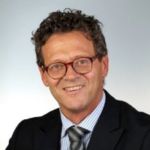Clean Energy for Migrants and Vulnerable Groups
This session will examine the links between energy, development and migration. According to estimates of the United Nations High Commissioner for Refugees (UNHCR) and of the Internal Displacement Monitoring Centre (IDMC), by the end of 2015 65.3 million people were forcibly displaced globally, including 40.8 million who were internally displaced due to conflict and violence, and 21.4 million refugees, a number not seen since the Second World War. Current global challenges such as climate change, human security, political instabilities and economic inequalities have further contributed to the large migration of vulnerable communities.
The refugee crisis is global and it is evident that current energy systems often used in migrants’ countries of origin as well as in temporary or transit camps and settlements are inefficient, costly and mostly fossil-fuel based. While these complexities and challenges are daunting, the integration and settlement of migrants in a new environment pose a huge challenge to the international community. However, the migration crisis also presents an opportunity to provide integrated energy services and related skills to migrants in an effective, low carbon, and cost-efficient manner that would empower them to maintain a better quality of life.
The possibilities of new and innovative mechanisms for meeting the energy needs of migrants, refugees, and vulnerable groups on a sustainable basis will be explored to help ensure that they are able to sustain their daily lives as well as prepare for a better future. The event builds on the EUEI PDF Discussion Forum held in Brussels in January 2017, and will present the key findings of the paper drawn up on the energy and migration nexus.
docum: Session Summary, Daniel Werner – “The Role of Sustainable Energy Access in the Migration Debate”





